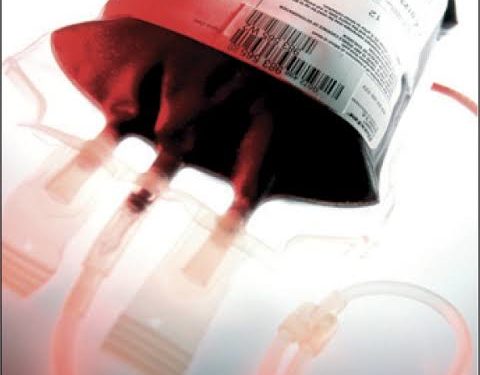Nigeria, a nation of over 200 million people, is currently grappling with a severe blood crisis in the hospitals. The shortage of blood bags, coupled with poor funding for blood services and a lack of investment from stakeholders, have created a dire situation that demands immediate attention. This newspaper considers it important to shed light on the gravity of the problem so as to urge stakeholders and policymakers to take swift action to tackle this pressing issue.
The World Health Organisation (WHO) puts the matter in perspective as the international community marked the World Blood Donor Day 2023, recently, with the theme ‘give blood, give plasma, share life, share often’. The world body also pointed out that in many countries, blood services face the challenge of making sufficient blood available, while also ensuring its quality and safety. Lack of access to safe blood and blood products – especially in low- and middle-income countries, it lamented, impacts on all patients, including those requiring regular transfusion.
In Nigeria, one of the primary concerns contributing to the blood crisis is the shortage of blood bags. Blood bags are an essential component of the blood transfusion process, ensuring the safe collection, storage, and transportation of donated blood. However, the scarcity of this crucial item has severely hampered the ability of healthcare providers to deliver life-saving transfusions. This shortage is exacerbated by the absence of a robust system for manufacturing and distributing blood bags in Nigeria. It is imperative that the government and relevant authorities prioritize the procurement and distribution of an adequate supply of blood bags across the country.
Furthermore, the inadequate funding for blood services in Nigeria has played a significant role in perpetuating the crisis. Adequate funding is essential for maintaining a smooth-functioning blood service infrastructure, which includes facilities for blood collection, testing, processing, and storage. Insufficient funding has led to the deterioration of these facilities, limiting their capacity to meet the growing demand for blood transfusion.
In our opinion, it is time that the government allocated a substantial budget to support the development and maintenance of an efficient blood service system. Additionally, it is crucial to establish effective financial mechanisms to sustainably fund blood services, such as partnerships with private organisations or the introduction of a national health insurance scheme that covers blood transfusion.
Equally important, in our view, is the urgent need for stakeholders’ investments in blood services. The responsibility of addressing the blood crisis should not solely rest on the shoulders of the government. Stakeholders, including healthcare institutions, non-governmental organisations, and the private sector, must actively participate in investing resources, both financial and infrastructural, to strengthen the blood service system. Collaboration between public and private entities can lead to the establishment of well-equipped blood centres, recruitment of trained personnel, and the development of comprehensive awareness campaigns to promote voluntary blood donation. Additionally, partnerships with international organizations and other countries that have successfully addressed their own blood crises could provide valuable knowledge and support in tackling Nigeria’s challenges.
A multi-faceted approach is required to resolve the blood crisis in Nigeria. Firstly, immediate steps must be taken to address the shortage of blood bags by ensuring their availability throughout the country. Secondly, increased funding from the government, coupled with sustainable financial mechanisms, is necessary to strengthen the blood service infrastructure. Lastly, stakeholders must step up and invest in the blood service sector, leveraging their resources and expertise to support the cause.
Moreover, in our considered opinion, raising public awareness about the importance of voluntary blood donation is essential. Nigeria needs a robust public campaign to dispel myths and misconceptions about blood donation, encourage regular voluntary donations, and establish a culture of altruism among its citizens. This campaign should target educational institutions, religious organizations, and communities at large to foster a sense of social responsibility and collective action. The blood crisis in Nigeria demands immediate attention and concerted efforts from all stakeholders. Lives are at stake, and every passing day without action further deepens the crisis.
It is incumbent upon the government, healthcare institutions, nongovernmental organisations (NGOs), the private sector, and the international community to come together and prioritize the process of resolving this pressing issue. Failure to address the blood crisis will have far-reaching consequences for the Nigerian people and their right to access safe and timely blood transfusions. The time for action is now, and the importance of investing in a robust blood service system cannot be overstated.



